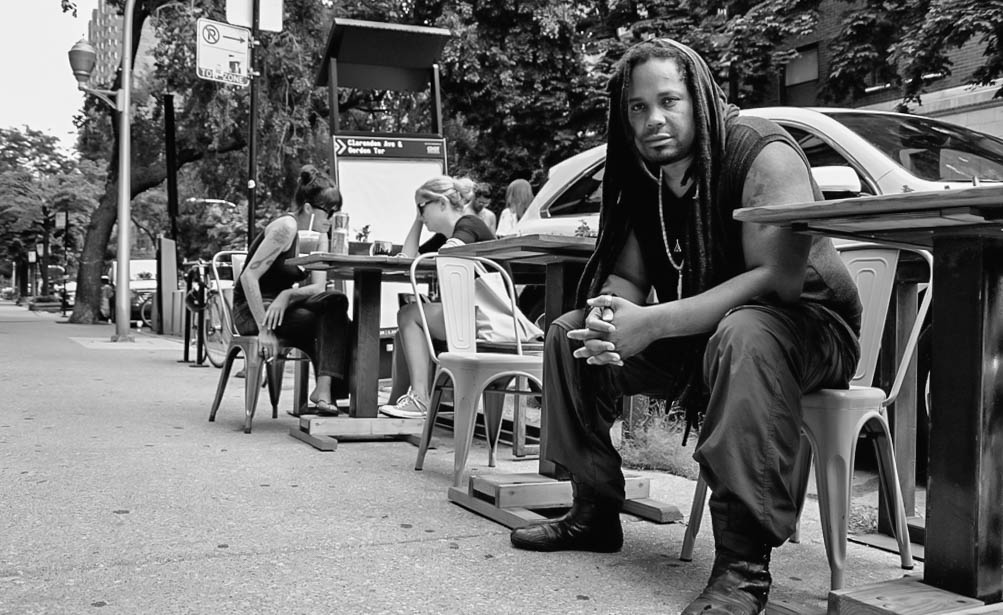On a blustery autumn day in West Town, Chicago Phonic, a new educational center for electronic musicians, held its first public open house. Mixers, turntables, and computers were all neatly arranged in a room wrapped with lush, seafoam green wallpaper. Prospective students asked questions and milled around the narrow facility. Daryl Cura, one of Chicago Phonic’s founders, patiently answered questions on modern electronic productions while cracking open cold bottles of Peroni.
In the months leading up to Chicago Phonic’s conception, veteran Chicago electronic musicians Jamal Moss, a.k.a. Hieroglyphic Being, and Daryl Cura talked about the state of electronic music culture. They noticed a problem. Although the culture of electronic music has spread across the world and attracts new followers daily, there is a sense among the pioneers that the roots of this culture are being buried. Chicagoans who created the foundations of the movement have been forgotten. Sadly, they felt that new fans, who came from backgrounds much whiter and wealthier than the founders of Chicago house music, were not celebrating the music’s Chicago roots. There was a complete omission of history, but as Moss, an Englewood native considered a pioneer in modern underground Chicago house music, put it, “You can’t complain about it, be about it.”
And “be about it” they did, as they have been busy over the past months creating the business plan and curriculum for this new facility. Chicago Phonic will offer classes on electronic music production, DJ fundamentals, and using professional music editing software like Ableton Live. The classes are designed to familiarize each student with a basic understanding of music theory, beat making, and sampling—all of which are at the foundations of current and future electronic music production. The length of each program is relatively short, ending after a month or two at the most, to better facilitate classes for adult learners with other obligations in their lives. Prices vary by program. Additionally, a tiered membership program offers a unique opportunity to have access to the space and other programming for those who are looking to be a part of Chicago Phonic’s burgeoning community.
One individual that came out to the open house was Dakari Cooper, a.k.a. Super DaKario. As a rapper/vocalist, Cooper was inspired to attend that afternoon after hearing about it through Instagram. He is also a new student at the school, enrolled in an Ableton Live course.
“I have always been interested but never actually pursued on my own,” Cooper said. “It’s a little bit overwhelming because it was a new experience and I was unfamiliar with the program, but with every session I am more comfortable thanks to the instructor.”
Providing this kind of support is just what Moss had in mind for the space. “It’s not about vision,” Moss said. “It’s about rebuilding or restructuring an artists’ community that already exists to help facilitate and enhance or share knowledge and experiences between [creative types].”
What Chicago Phonic is serious about is creating a visual and sonic hub—a place where DJs, producers and techies can collaborate and help write the next chapter in Chicago electronic music history. The space will act as a de facto co-working facility and collaboration lab, where new musicians can learn about Chicago’s house history. To undertake this ambitious goal, Moss has a few milestones he would like to reach within the next couple of years. “It’s a set of protocols put in place for a sustainable environment and a developed foundation to be viable and functional with objectives for extensive growth to build and acquire more tools and resources for the Chicago area to utilize for as long as it takes,” he said.
That growth would mean expanding into a larger space. As cute as the seafoam green walls are, the space was rather narrow and cramped with a full house of about twenty people. More technology would be needed for individuals to develop music apps and hardware. Moss takes that all in stride as a part of the growing process of Chicago Phonic.
Moss also encourages all who are curious to get involved: “If you care about the culture, got a website, want to be involved in music technology or if you want to donate equipment, come on down!”
Support community journalism by donating to South Side Weekly

